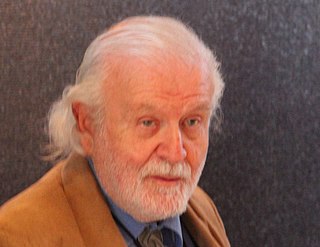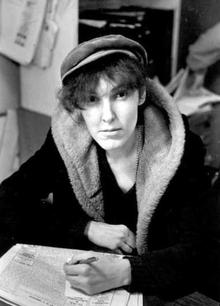A Quote by Tim Jackson
On the mathematical side, you could in principle build a society in which people were fulfilling their needs and flourishing as human beings in a higher way than in a consumer society, provided you had the right investments in the opportunity to flourish in less materialistic ways.
Related Quotes
Women's lib, Frannie had decided, was nothing more nor less than an outgrowth of the technological society. Women were at the mercy of their bodies. They were smaller. They tended to be weaker. A man couldn't get with child, but a woman could---every four-year-old knows it. And a pregnant woman is a vulnerable human being. Civilization had provided an umbrella of sanity that both sexes could stand beneath.
The classics of Marxism talked of communism as a society to which a modern society should aspire, a society truly fair, where the relations of monetary exchange were not the priority but one wher the people's needs could be satisfied, and where people would not be worth more according to how much monetary wealth they acquired. Instead their value would be based on their contribution to society as a whole. It would be a society without class that would accept people based on their capabilities and their potential to contribute to that society.
Karl Marx left it to others to find the way beyond capitalism to a higher form of society. He saw his role as giving them as accurate a theory as he could of how capitalism works, which would also show them the reasons why it needs to be abolished and replaced by a freer and more human form of society.
I am persuaded to think that any climate change is bad because of the investments and adaptations that have been made by human beings and all of the things that support human existence upon this globe. Even minor fluctuations of climate could change the distribution of fish, … upset agriculture,…and inundate costal cities…… Such changes could occur at a faster rate perhaps than human society can evolve.
Love can't flourish in a "society" based on money and meaningless work, but rather requires complete economic, as well as personal, freedom, leisure time and the opportunity to engage in intensely absorbing, emotionally satisfying activities which, when shared with those you respect, lead to deep friendship, but which our "society" provides practically no opportunity to engage in.
Society mediates between the extremes of, on the one hand, intolerably strict morality and, on the other, dangerously anarchic permissiveness through an unspoken agreement whereby we are given leave to bend the rules of the strictest morality, provided we do so quietly and discreetly. Hypocrisy is the grease that keeps society functioning in an agreeable way, by allowing for human fallibility and reconciling the seemingly irreconcilable human needs for order and pleasure.
For society as a whole, nothing comes as a "right" to which we are "entitled." Even bare subsistence has to be produced-and produced at a cost of heavy toil for much of human history. The only way anyone can have a right to something that has to be produced is to force someone else to produce it for him. The more things are provided as rights, the less the recipients have to work and the more others have to carry their load.
When I was small child, all that belonged to conservative society was fashionable, and no republicans were welcome in the smartersalons. People living in such a milieu could imagine that the impossibility of ever inviting an "opportunist", much less a "radical", was a thing that would last forever, like gas lamps and horse-drawn omnibuses. But similar to kaleidoscopes turning from time to time, society successively places in various ways elements which were thought to be immutable and creates a new composition.
We believe... that by encouraging critical thinking and processing of knowledge we are creating full, well-rounded human beings... that will enable Qatar to build up its society. You cannot build a healthy society without giving your citizens a sense of ownership. Otherwise, they will not share with you the responsibilities.
[University students] hated the hypocrisy of adult society, the rigidity of its political institutions, the impersonality of its bureaucracies. They sought to create a society that places human values before materialistic ones, that has a little less head and a little more heart, that is dominated by self-interest and loves its neighbor more. And they were persuaded that group protest of a militant nature would advance those goals.
Human beings are themselves considered consumer goods to be used and then discarded. We have created a “disposable” culture which is now spreading. It is no longer simply about exploitation and oppression, but something new. Exclusion ultimately has to do with what it means to be a part of the society in which we live; those excluded are no longer society’s underside or its fringes or its disenfranchised – they are no longer even a part of it. The excluded are not the “exploited” but the outcast, the “leftovers”.
I come out of the environment of the Deep South, where I had seen the millstone of racial discrimination weighting down my people, both the black people and the white people; and I had seen the enormous progress that we were able to make after we removed the legal restraints of a two-class society, with the whites superior and blacks inferior. So I was very convinced before I became President that basic human rights, equality of opportunity, the end of abuse by governments of their people, was a basic principle on which the United States should be an acknowledged champion.




































